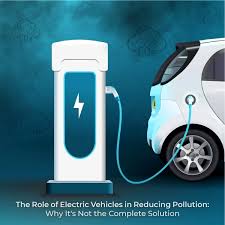Electric cars and air quality are increasingly intertwined topics as cities and nations strive to combat pollution and promote sustainable transportation. The shift towards electric vehicles (EVs) offers a promising solution to one of the most pressing environmental challenges of our time: poor air quality caused by emissions from traditional gasoline and diesel vehicles. Conventional internal combustion engines release significant amounts of harmful pollutants, including nitrogen oxides (NOx), particulate matter (PM), and volatile organic compounds (VOCs), which contribute to smog formation and respiratory illnesses. In contrast, electric cars produce zero tailpipe emissions, making them a cleaner alternative that can significantly reduce the overall pollution levels in urban areas. This transition is crucial, especially in densely populated cities where vehicular traffic is a major source of air pollution and associated health problems.

As the adoption of electric cars increases, studies show a clear correlation between the rise of EVs and improvements in air quality. For instance, research has indicated that regions with higher concentrations of electric vehicles experience lower levels of ground-level ozone and particulate matter, leading to better respiratory health outcomes among residents. This is particularly important for vulnerable populations, such as children and the elderly, who are more susceptible to the adverse effects of air pollution. By reducing the reliance on fossil fuel-powered vehicles, electric cars and air quality benefits are mutually reinforcing, leading to cleaner, healthier environments.
Furthermore, electric cars and air quality improvements can lead to significant economic benefits. Cleaner air translates to lower healthcare costs associated with treating pollution-related illnesses, ultimately benefiting public health systems and taxpayers. Additionally, cities that invest in electric vehicle infrastructure can attract new businesses and residents who prioritize sustainability, leading to economic growth. The green economy created by electric vehicle adoption can generate jobs in manufacturing, installation, and maintenance, contributing to a more sustainable future.
Despite the clear benefits of electric cars on air quality, challenges remain. The initial cost of electric vehicles can be a barrier for many consumers, and disparities in access to charging infrastructure can hinder widespread adoption. Addressing these challenges requires coordinated efforts to ensure that electric vehicles are accessible and affordable for all communities, particularly in underserved areas. Policies aimed at expanding charging networks and providing financial assistance for low-income individuals to purchase electric cars are essential in leveling the playing field and ensuring that everyone can benefit from cleaner air.
In conclusion, the connection between electric cars and air quality represents a critical opportunity for improving public health and promoting environmental sustainability. By reducing emissions, particularly in urban areas, electric vehicles can significantly enhance air quality and contribute to healthier communities. As the electricity grid becomes increasingly reliant on renewable energy, the benefits of electric cars will only grow, emphasizing the need for continued investment in clean transportation solutions.


















Leave a Reply